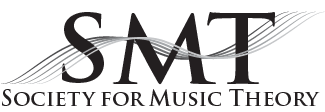Hello!
If you would like to participate in discussions, please sign in or register.
Categories
In this Discussion
- Zachary Cairns January 2016
- eric lai January 2016
- Lynn Raley January 2016
Most Popular This Week
Chinese language(s), music theory, and Google Translate
Hello, all!
I'll begin by making a disclaimer that I know absolutely nothing about Chinese languages...so please forgive me if I say anything absurd here.
In recent years, my university has been seeing increasing number of Chinese transfer students, many of whom take a number of music theory classes with me after having transfered some basic theory credits from their Chinese institutions. So, I'll have students in Theory III who transferred Theory I and II from China; or, I'll have students in 18th C counterpoint who transferred Theory I-IV.
Many of these students are reasonably well versed in "music theory stuff" (to borrow a fun phrase from one of my students), but the language barrier is an issue. Specifically, I'm running into challenges in my Theory IV class, which requires the students to write a significant amount of (English prose) analytical observations for various homework assignments, projects, etc. My Chinese students have strong enough conversational English skills, and have taken many EAP (English for Academic Purposes) classes here -- but none of those skills involve the technical vocabulary of music theory, and therefore they rely on Google Translate (etc) to help translate their Chinese knowledge into English.
Sometimes, it's easy for me to figure out what they're referring to. "...the chord which passes through Naples" (Neapolitan chord), or "Bb junior chord" (Bb minor chord, I think), etc. But there are many times where it's just impossible for me to determine what they are saying.
Can anyone point me to any sort of resource (web-based, print-based?) that might be able to serve as a translation aid for these students (and for me)? Even though I can't read a lick of Mandarin, it might be helpful if I had a book to point to that shows the Chinese equivalent of "enharmonic spelling of a German augmented sixth chord." Or even an English list of Google Transl
If anyone has any suggestions, I'm all ears. Thank you, kindly, in advance,
Zac Cairns (University of Missouri - St. Louis)
SMT Discuss Manager: smtdiscuss@societymusictheory.org

Comments
Hi, Zac:
If it's helpful, here's a place to start, but it's not perfect. I have a file I can send you (apparently it's not possible to attach a file in an SMT reply) that has around 50 pages of music terms in Chinese . It does not have the pinyin (Romanized version you might be able to read from), but the characters (mainland simplified characters) are to the right, and the student would be able to read it. Or you could copy the character into Google Translate, which at least would show you the pinyin, and even pronounce it for you. (There's a little speaker icon you click on Google Translate and it will say it for you in Chinese -- or English.)
I do read Mandarin, and this has been helpful in my teaching.
I will have to e-mail you privately to send you the file (unless someone knows how to attach one here).
H. Lynn Raley, Millsaps College
Sorry -- that sentence (fragment) near the end should say "Or even an English list of Google Translate-generated translations of Chinese-to-English music theoretical terms."
Hi Zac, I've found a couple of apps that you might want to check out:
https://itunes.apple.com/us/app/id434216490
https://itunes.apple.com/us/app/id1040366269
I am not familiar with them, but from what is shown the terms they have seem rather rudimentary, especially the second one, which covers up to "Grade 5," whatever that might mean (possibily the Royal Schools of Music system). The first one, however, has both traditional and simplified Chinese translations, so that's a plus. I also have a list of terms in English and Chinese (simplified) that I can send you--it doesn't include some of the more advanced theoretical terms (Neapolitan for one), but at least can get you started. Let me know.
Eric Lai, Baylor University